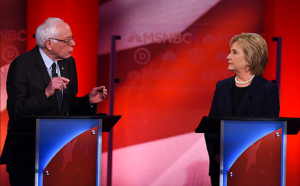 To hear Senator Hillary Clinton’s campaign tell it, you would think that there is absolutely no way to transition from the Affordable Care Act (ACA) world of today to an eventual Medicare-for-All world that her opponent Senator Bernie Sanders promotes.
To hear Senator Hillary Clinton’s campaign tell it, you would think that there is absolutely no way to transition from the Affordable Care Act (ACA) world of today to an eventual Medicare-for-All world that her opponent Senator Bernie Sanders promotes.
The Clinton campaign asserts that the ACA and Medicare-for-All are effectively mutually exclusive. That is, they claim that if you support Medicare-for-All, you must be against the ACA. For instance, former First Daughter Chelsea Clinton was put out on the stump to play Chicken Little:
“Senator Sanders wants to dismantle Obamacare, dismantle the CHIP program, dismantle Medicare, and dismantle private insurance. I worry if we give Republicans Democratic permission to do that, we’ll go back to an era — before we had the Affordable Care Act — that would strip millions and millions and millions of people off their health insurance.”
Chelsea’s mom, a bona fide health care policy expert, knows better. She knows that Senator Sanders proposes to consolidate public insurance programs to make coverage better and more efficient, not eliminate public coverage.
The Clinton campaign’s dire warnings aside, there is a potential middle ground between Senator Sanders’ Medicare-for-All Model and Secretary Clinton’s Stick With The ACA Model. It’s a middle ground that is more politically viable than what Sanders proposes, and more progressive than what Clinton proposes.
The middle ground is this: Amend the Affordable Care Act to allow ACA exchange shoppers the option of voluntarily buying into Medicare.
This middle ground approach would effectively empower patients to decide the fate of Medicare-for-All. Here’s how: If over the years enough ACA exchange shoppers choose of their own free will to buy into Medicare, we will be making progress towards a public single payer system, which in numerous other western countries has proven to be a more effective and efficient model than America’s current model.
On the other hand, if private insurance options prove to be the most attractive, on a quality and/or price basis, the Medicare buy-in option will die off, because it will be exposed as being as inferior as Republicans claim it to be.
But with this Medicare buy-in option, patients would effectively decide Medicare-for-All’s ultimate fate, not politicians. That’s why it’s a middle ground position.
Senator Clinton maintains that a public option lacks sufficient congressional support to pass, and that is certainly a distinct possibility. But if she proves to be correct and it gets defeated, the ACA will still be there. At that point, we would simply stay with the status quo ACA model.
But I’d like to see an aspirational President who was willing to lead a campaign to enact this middle ground approach. Because this would be merely optional for patients, it is much more politically feasible than Sanders’ proposal to mandate Medicare-for-All. Even if a Medicare buy-in option loses, promoting the issue now may pave the way for eventual passage in the future. It moves the national debate forward.
I actually think a passionate, committed President would have an outside shot of passing this. After all, there already is a great deal of support for this approach. GBA Strategies recently asked 1,500 likely 2016 voters whether they supporting giving “all Americans the choice of buying health insurance through Medicare or private insurances, which would provide competition for insurance companies and more options for consumers.”
An overwhelming 71% supported this Medicare buy-in option, including 63% of Republicans and 71% of Independents. Only 13% opposed.
After the special interests start their multi-million distortion and lobbying campaigns, the Medicare buy-in option may well get defeated in a Congress that defeats just about everything. (In fact, any of Senator Clinton’s ideas for incrementally improving the ACA also face a steep uphill battle with a Republican-controlled House). But this survey tells me that there is a solid foundation of support to build on. So why not lead the American people towards this place halfway between Bernie and Hillary, and at least try to make some progress.
Note: This post was featured in MinnPost’s Blog Cabin.

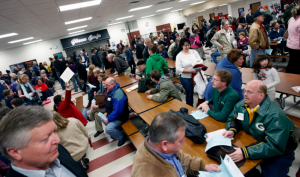 On March 1, Minnesota’s two major political parties will select its presidential nominees with a caucus system. Iowa will use a similar system in just a few days. So maybe we should take a moment to consider who gets the most and least representation out of this system.
On March 1, Minnesota’s two major political parties will select its presidential nominees with a caucus system. Iowa will use a similar system in just a few days. So maybe we should take a moment to consider who gets the most and least representation out of this system.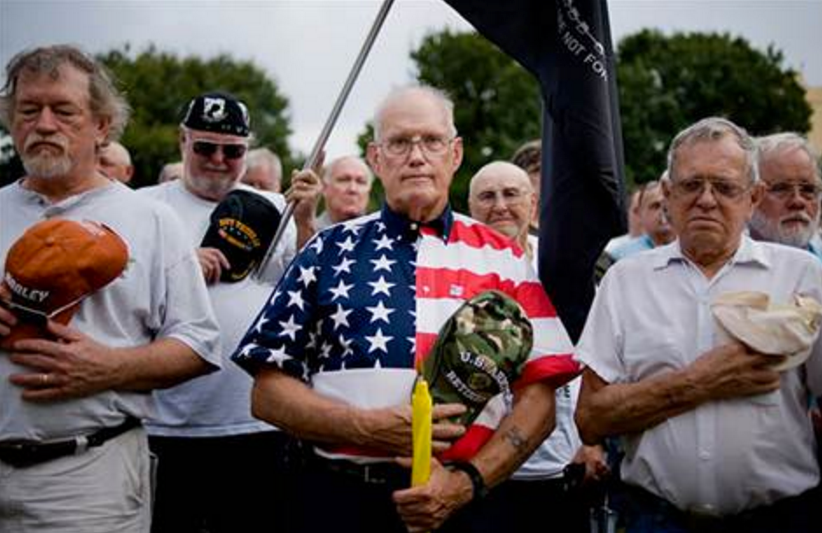
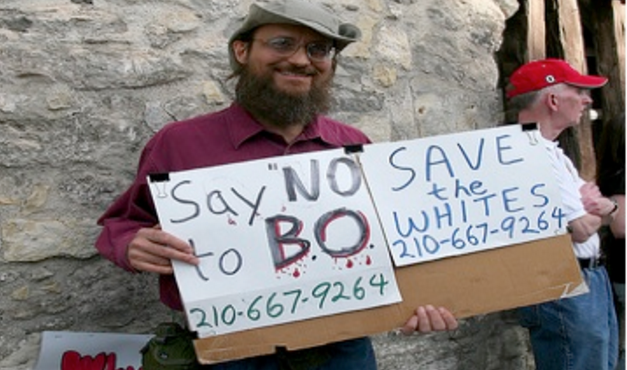 Mamas don’t let your babies grow up to be tea boys.
Mamas don’t let your babies grow up to be tea boys.
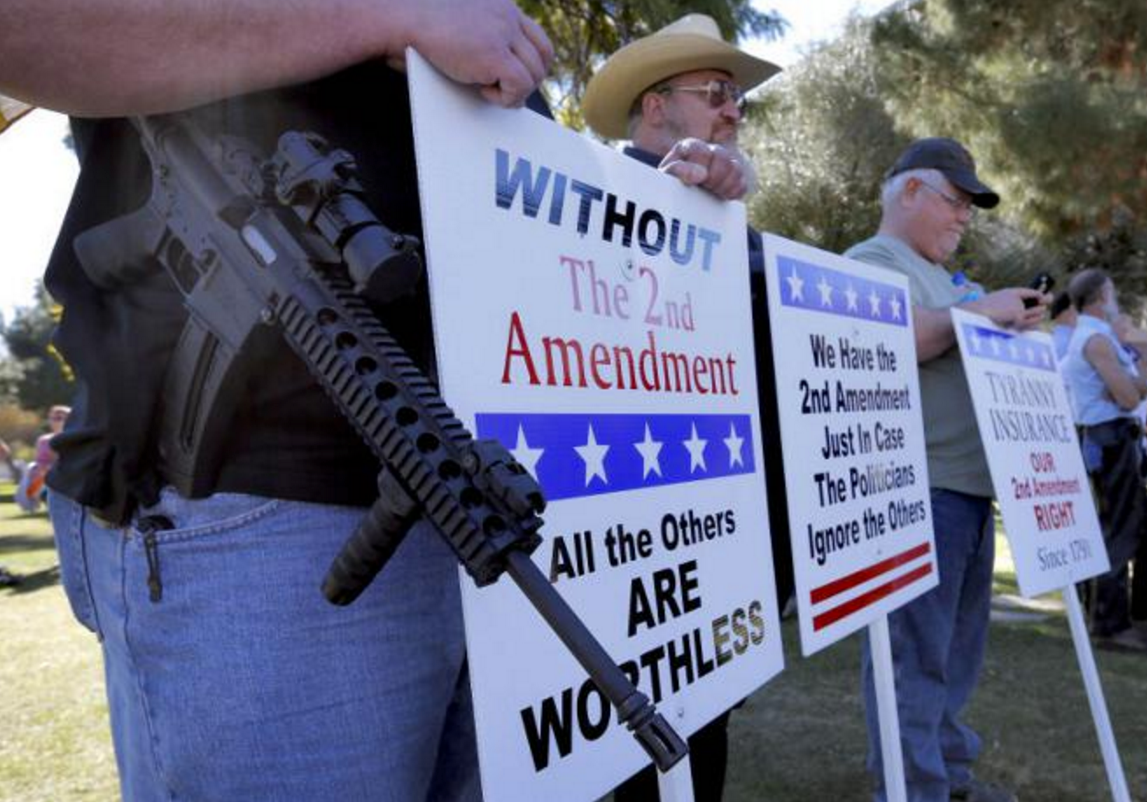 Mamas don’t let your babies grow up to be tea boys.
Mamas don’t let your babies grow up to be tea boys.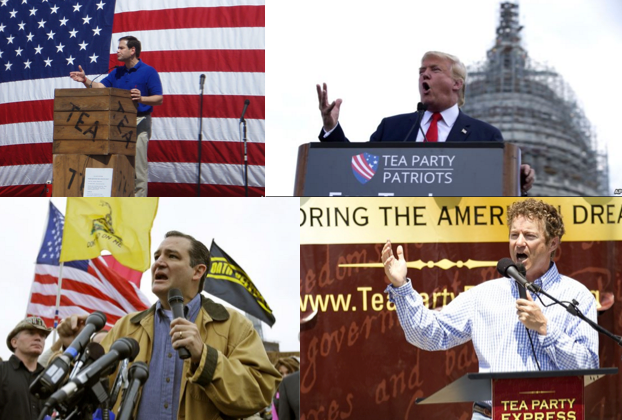
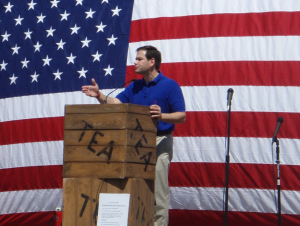 Rubio ran for Senate in Florida as the candidate of the extremist Tea Party, not as the moderate alternative to the Tea Party.
Rubio ran for Senate in Florida as the candidate of the extremist Tea Party, not as the moderate alternative to the Tea Party.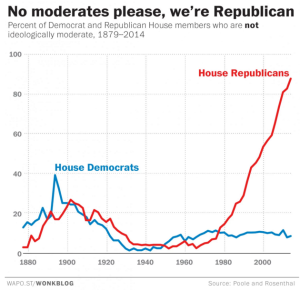 By any reasonable measure, Senator Rubio is a far-right extremist, as is Ohio Republican Governor John Kasich (88% lifetime ACU rating), who is also sometimes inaccurately labeled a moderate by simplistic pundits. Political scientists have
By any reasonable measure, Senator Rubio is a far-right extremist, as is Ohio Republican Governor John Kasich (88% lifetime ACU rating), who is also sometimes inaccurately labeled a moderate by simplistic pundits. Political scientists have  These are very scary times. Who among us does not lie awake at night worrying about dying in an elevator? I mean, what if one came crashing down while you were riding in it? Makes me shudder just thinking about it.
These are very scary times. Who among us does not lie awake at night worrying about dying in an elevator? I mean, what if one came crashing down while you were riding in it? Makes me shudder just thinking about it.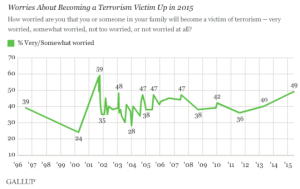 Despite this relatively low level of risk, many Americans are overcome by our fear of terrorism. Even in June 2015, well before the recent Paris and California terrorist attacks,
Despite this relatively low level of risk, many Americans are overcome by our fear of terrorism. Even in June 2015, well before the recent Paris and California terrorist attacks, 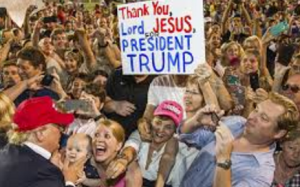 Watching the news coverage of the Republican presidential campaign, you get the feeling that there is a wave of support for the ideas of leading Republican candidates like Donald Trump, Ben Carson, Ted Cruz and Marco Rubio. For example,
Watching the news coverage of the Republican presidential campaign, you get the feeling that there is a wave of support for the ideas of leading Republican candidates like Donald Trump, Ben Carson, Ted Cruz and Marco Rubio. For example, 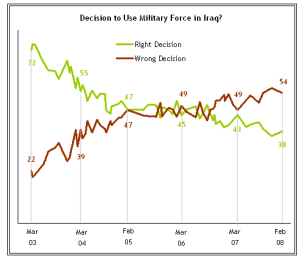 In other words, the national mood is much like when America rushed into the Iraq War in 2003.
In other words, the national mood is much like when America rushed into the Iraq War in 2003. 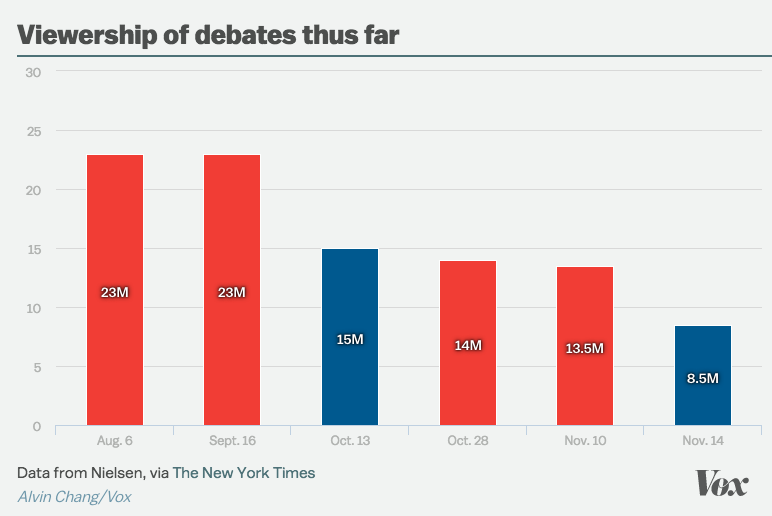
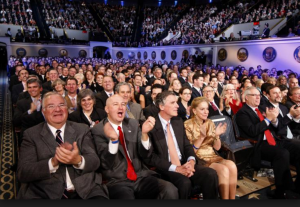 If I were a political party chair, I would make one simple adjustment to make my party more competitive. I would only allow general election swing voters to attend candidate debates.
If I were a political party chair, I would make one simple adjustment to make my party more competitive. I would only allow general election swing voters to attend candidate debates.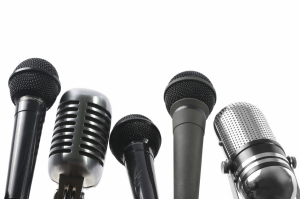 The messenger is the message. If a professor delivers a message, it tends to sound objective, studied and evidence-based. If an elder statesman delivers a message, it tends to sound thoughtful, even-handed and rational. If a reporter of a credible news outlet delivers a message, it tends to sound legitimate, consequential, and relevant.
The messenger is the message. If a professor delivers a message, it tends to sound objective, studied and evidence-based. If an elder statesman delivers a message, it tends to sound thoughtful, even-handed and rational. If a reporter of a credible news outlet delivers a message, it tends to sound legitimate, consequential, and relevant.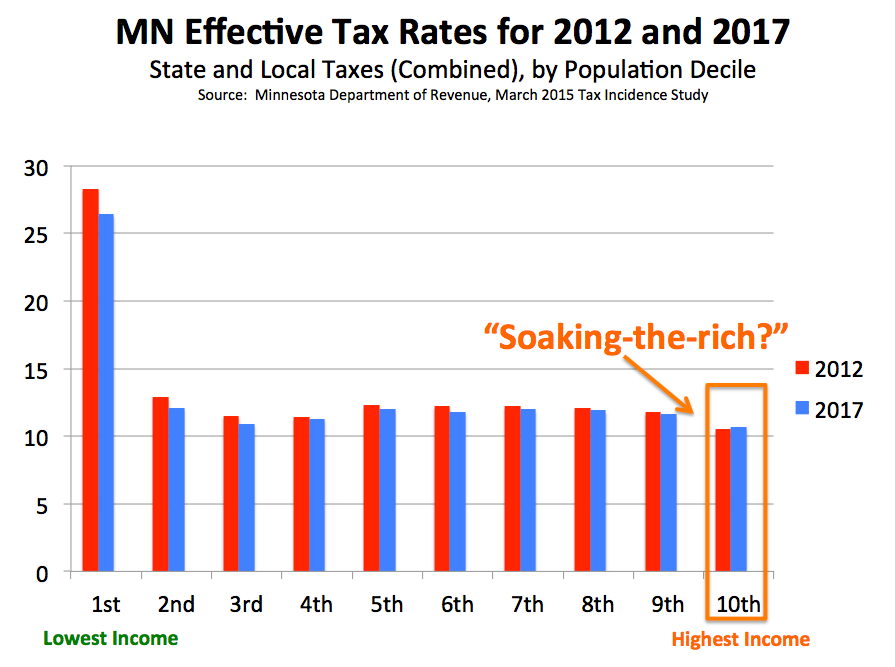
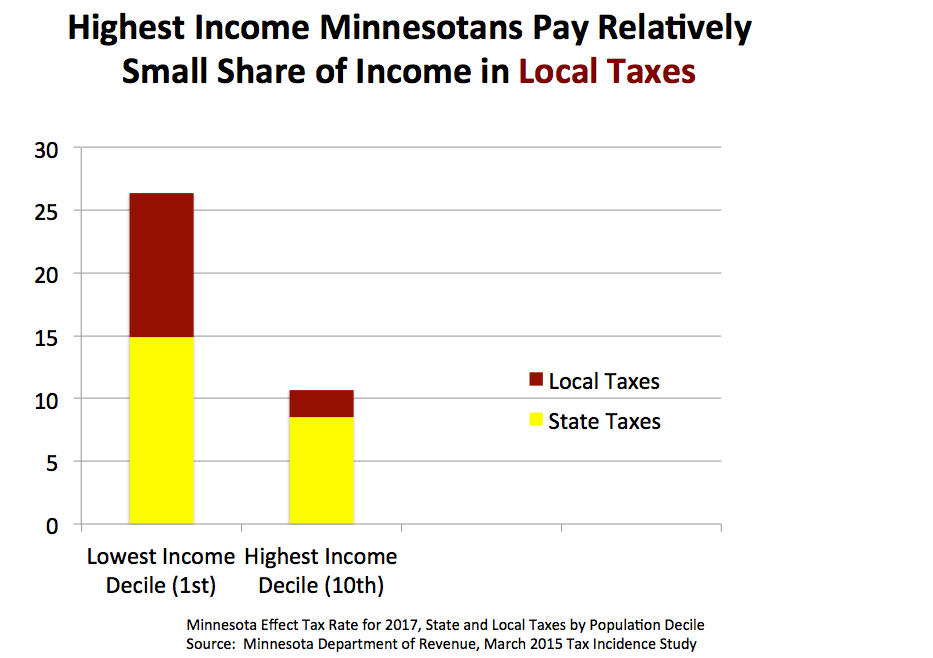 This is a point that is frequently missed, or intentionally ignored, by people who focus solely on state tax burdens, without also taking local tax burdens into consideration.
This is a point that is frequently missed, or intentionally ignored, by people who focus solely on state tax burdens, without also taking local tax burdens into consideration.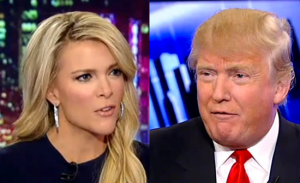 So, Donald Trump
So, Donald Trump  The antics of Republican members of the Minnesota State Legislature used to be a
The antics of Republican members of the Minnesota State Legislature used to be a  But to my knowledge, there were no legislators
But to my knowledge, there were no legislators 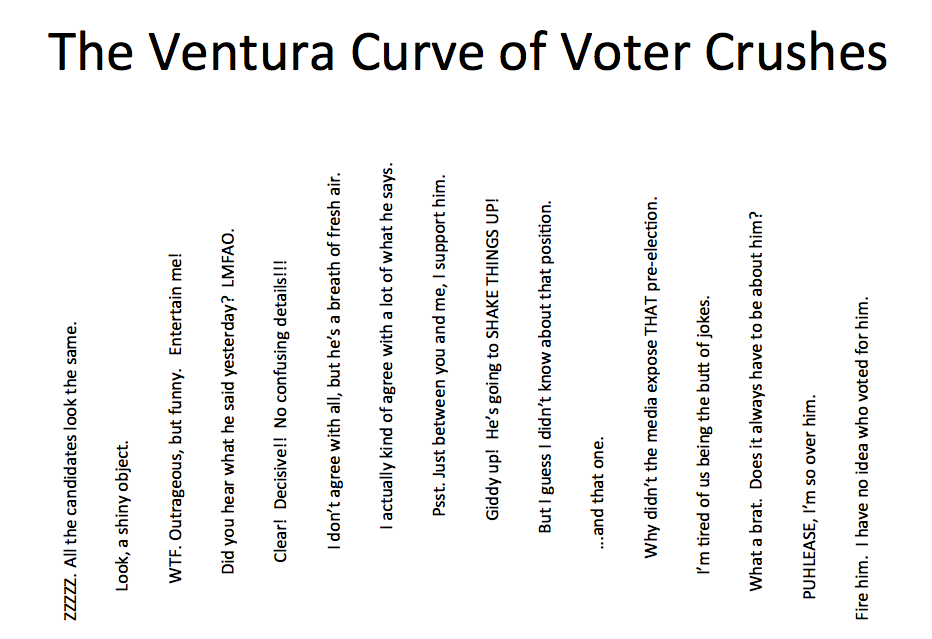
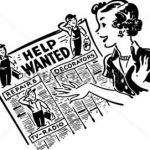 Become a member of our dynamic Minnesota House of Representatives team! We are seeking candidates with deep professional experience, strong educational background, extensive community ties, impeccable personal ethics and morals, outstanding interpersonal skills, uncommon diplomatic acumen, stellar leadership qualities, deep policy expertise in several different areas, and a highly photogenic family. Come associate your good name with an organization that has the approval of a historically low
Become a member of our dynamic Minnesota House of Representatives team! We are seeking candidates with deep professional experience, strong educational background, extensive community ties, impeccable personal ethics and morals, outstanding interpersonal skills, uncommon diplomatic acumen, stellar leadership qualities, deep policy expertise in several different areas, and a highly photogenic family. Come associate your good name with an organization that has the approval of a historically low 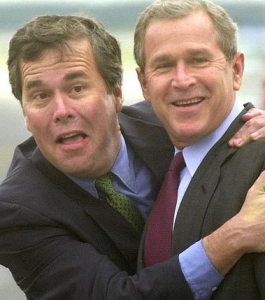 Prior to the Trump surge, Jeb Bush was being compared to his brother former-President George W. Bush, and he wasn’t managing that comparison well. He was
Prior to the Trump surge, Jeb Bush was being compared to his brother former-President George W. Bush, and he wasn’t managing that comparison well. He was 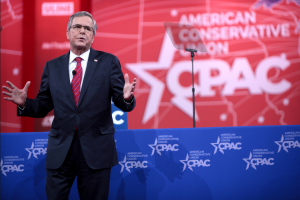 This is hardly a Republican “moderate” in the tradition of other Republican Presidents, such as Theodore Roosevelt, who was pro-union and anti-corporate monopoly, Dwight Eisenhower, who spent heavily on government-funded infrastructure and warned us about the military-industrial complex, or Richard Nixon, who created the Environmental Protection Agency and worked with Teddy Kennedy on a more generous version of Obamacare. Those are Republican moderates, not Jeb Bush.
This is hardly a Republican “moderate” in the tradition of other Republican Presidents, such as Theodore Roosevelt, who was pro-union and anti-corporate monopoly, Dwight Eisenhower, who spent heavily on government-funded infrastructure and warned us about the military-industrial complex, or Richard Nixon, who created the Environmental Protection Agency and worked with Teddy Kennedy on a more generous version of Obamacare. Those are Republican moderates, not Jeb Bush.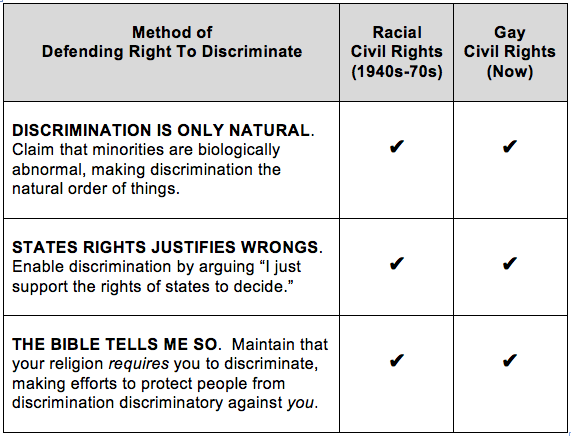
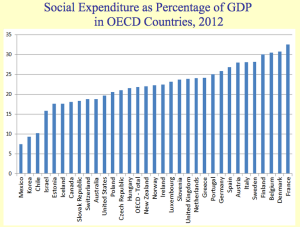 High as a kite from these clippings and the vindication they represent, DFLers run the risk of over-stepping, of pushing Minnesotans further than it they are comfortable going. As much as DFL politicians fantasize about bringing the social welfare
High as a kite from these clippings and the vindication they represent, DFLers run the risk of over-stepping, of pushing Minnesotans further than it they are comfortable going. As much as DFL politicians fantasize about bringing the social welfare 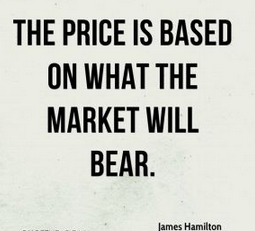 One of the things that you can usually expect Republicans to be consistent about is faith in market forces. They’re continually reminding us that we should trust market forces to allocate resources, as opposed to having politicians arbitrarily setting prices and picking winners and losers.
One of the things that you can usually expect Republicans to be consistent about is faith in market forces. They’re continually reminding us that we should trust market forces to allocate resources, as opposed to having politicians arbitrarily setting prices and picking winners and losers.